When a clown speaks your language: Emergency Smile in Türkiye
In May and June 2025, the Emergency Smile team spent four weeks in southern Türkiye. The earthquake that devastated the region in February 2023 left deep scars. Buildings collapsed. Lives were uprooted. Entire communities are still living in container homes. And yet, in the midst of all this, children go to school, families rebuild, and laughter still finds its way through.
This was the context into which the Emergency Smile team stepped—bringing with them not just red noses and suitcases full of props, but also presence and a deep commitment to joy.
Finding stages in the most unexpected places
The team began their mission in Gaziantep. Without access to theatres or dedicated rehearsal spaces, they prepared their show on a yard—surrounded by apartment blocks and the quiet hum of daily life.
Neighbours leaned over balconies to watch. Passer-by paused to observe. Children began to gather, becoming the first audience of the mission by taking part in the first activities. One teenager approached the team, curious and warm. ‘You’re the first foreigners I’ve ever spoken to,’ she said. That moment stayed with the team. Even in rehearsal, connections were being made.
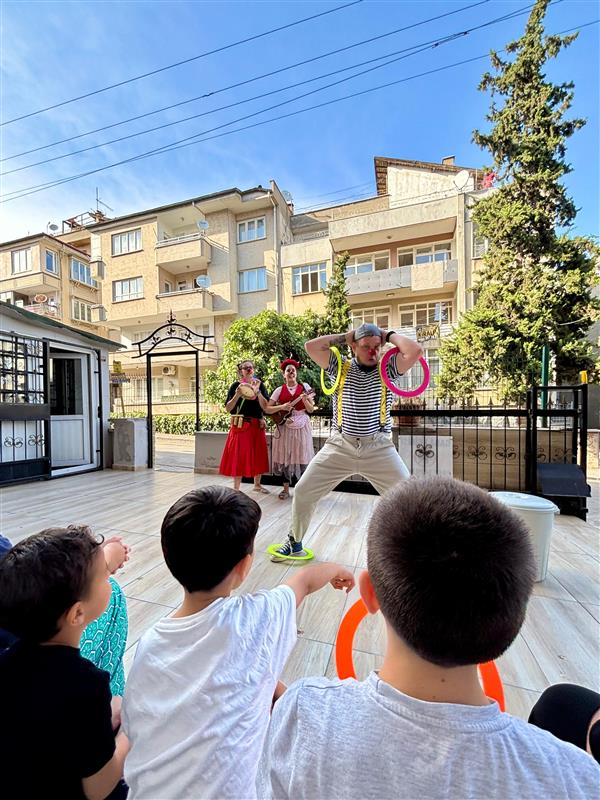 Enlarge photo
Enlarge photoRehearsing week in Gaziantep with the Emergency Smile team
For the first two activities during that week, Emergency Smile collaborated closely with the Turkish Red Crescent, who supported the work with a large group of international volunteers—from Türkiye as well as countries like Nigeria, Sudan, and Indonesia. Their presence added warmth and strength to each visit.
Small villages, big welcomes
In the second week, the team expanded their reach, working with the municipalities of Araban and Nurdağı. In Araban, they visited local villages primary schools; in Nurdağı, schools in container cities where families are still living more than two years after the quake.
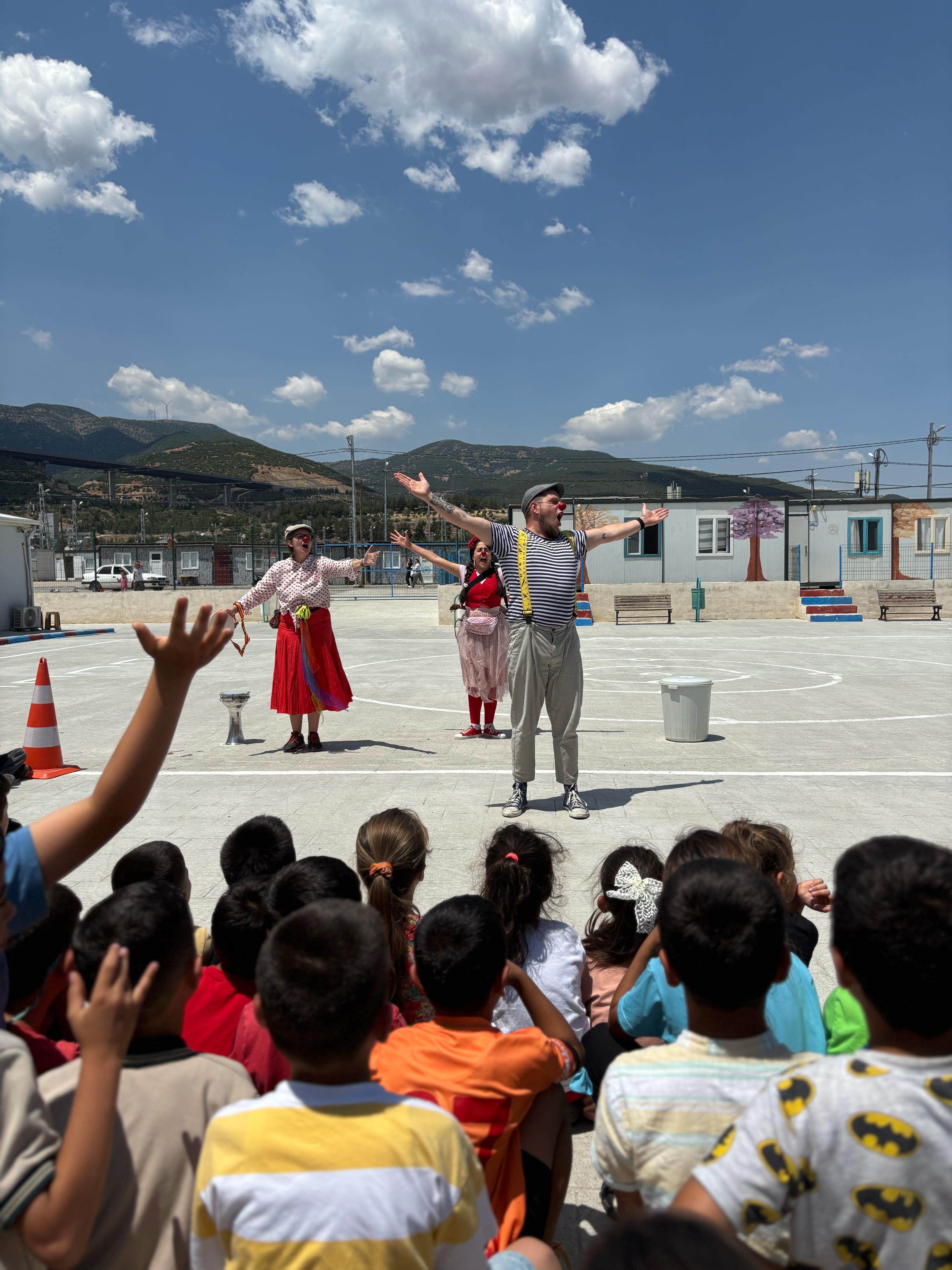 Enlarge photo
Enlarge photoClown show in a primary school inside one of the Nurdağı container cities
In these places, the team found dusty schoolyards and sweltering heat—but also open arms and wide smiles. In Araban, one village leader welcomed the artists with a warm meal after joining them at a local school to watch the show.
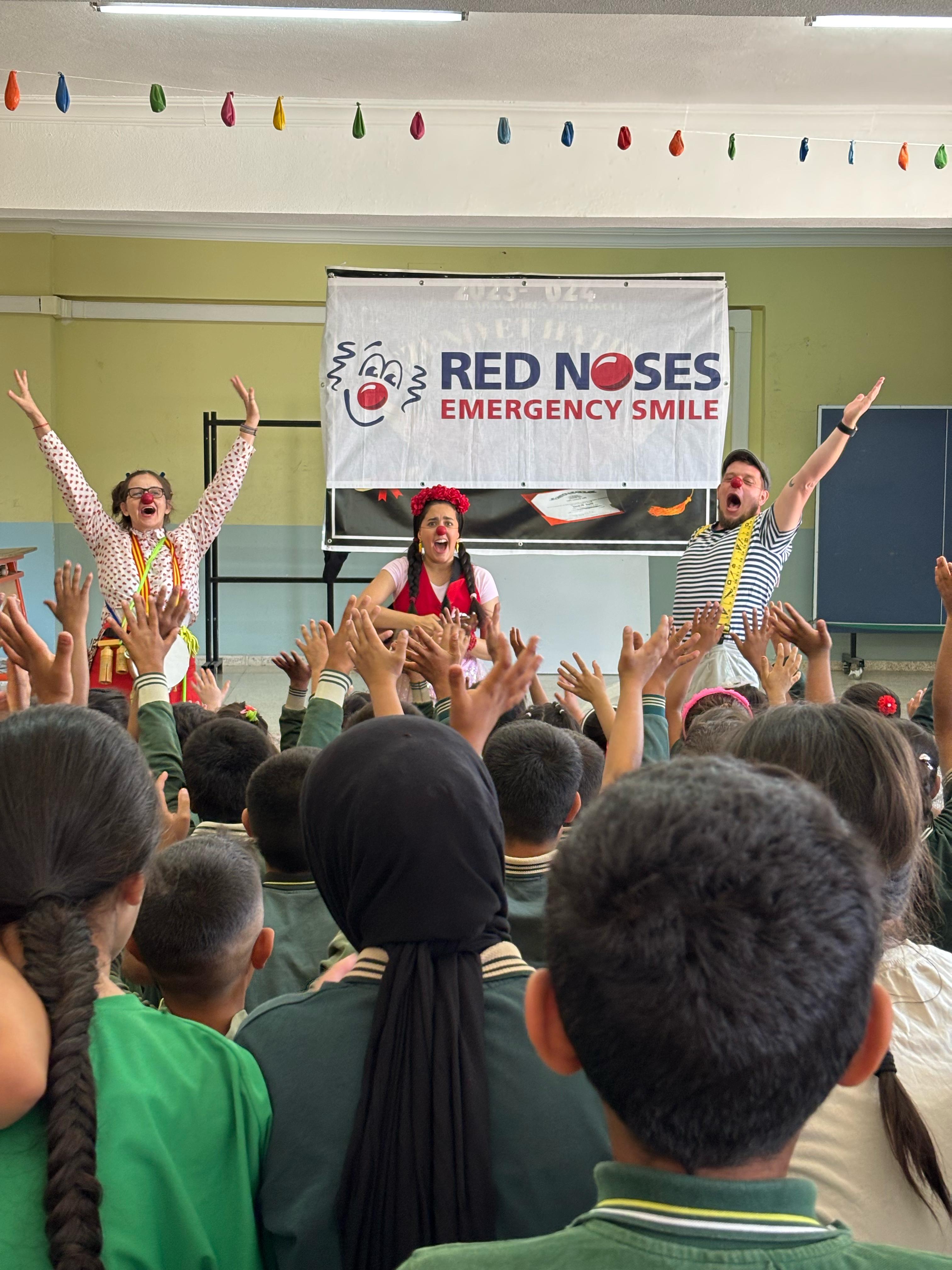 Enlarge photo
Enlarge photoClown show in the Büyükkaracaören primary school in the Araban district
Language, belonging, and a moment of recognition
Some of the children they met were Syrian or from Arabic-speaking communities. In the Hatay region especially, Arabic is spoken alongside Turkish.
So, when Razan, an artist from RED NOSES Jordan, spoke a few lines of Arabic during the show, something shifted. Children lit up. They leaned forward. One child, in particular, froze when he heard her. Then he smiled. Then the whole room buzzed with excitement.
Afterwards, a boy came to speak to her. His father was from Jordan—just like Razan. The impact was clear: someone like him was on stage. Someone spoke his language. That recognition mattered.
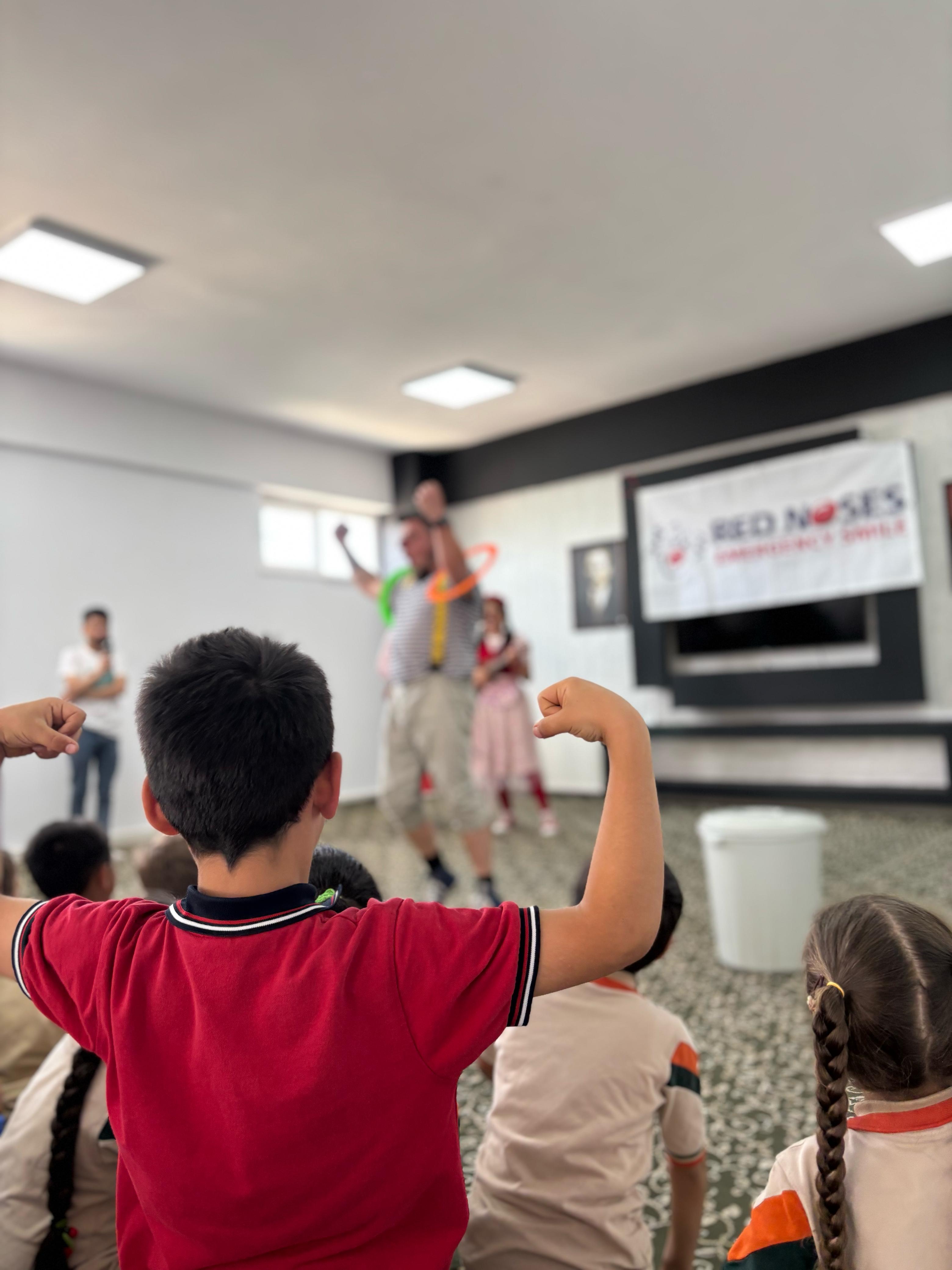 Enlarge photo
Enlarge photoClown show in the Araban Municipality for students of a local primary school
Celebrating Eid across generations
The mission also spanned Eid al-Adha. On one of those days, the team visited a care home—often quiet places where loneliness can settle in.
During the show, one man burst out laughing. And then he kept laughing—for a full five minutes. Others joined in. The room shifted. The mood lifted.
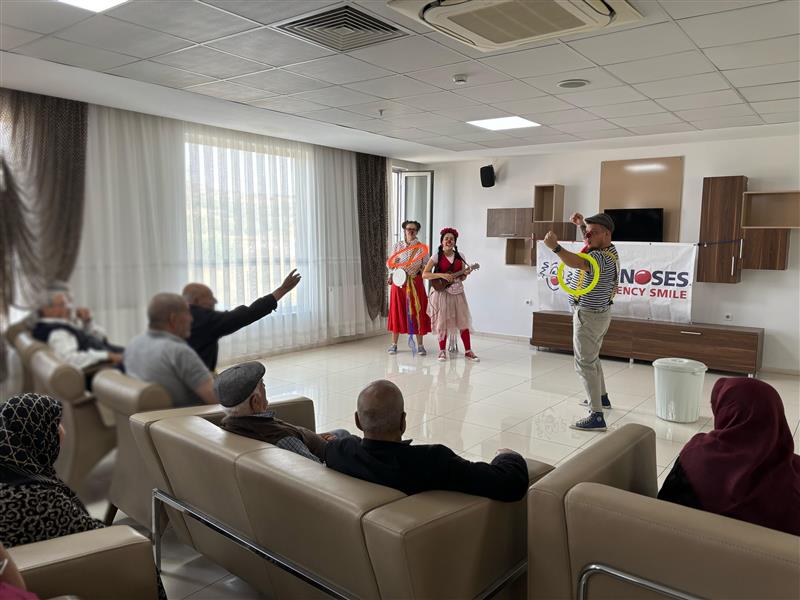 Enlarge photo
Enlarge photoActivity in an elderly care house in Gaziantep
That day brought a surprise: a group of children from a local orphanage arrived to celebrate Eid with the residents. All of them had seen the show a day earlier—and now ran toward the clown artists with joy and familiarity. The artists watched as children and older adults celebrated side by side—two generations brought together through play.
Hatay: closing the mission with joy
The final two weeks of the mission were spent in Hatay—a region still deeply affected by the 2023 earthquake. It was also the final stretch of the school year, just before summer holidays.
In one school, when the children heard that the clowns were coming back, they ran to school in excitement! The teachers were surprised to see that many children coming to school on that day!
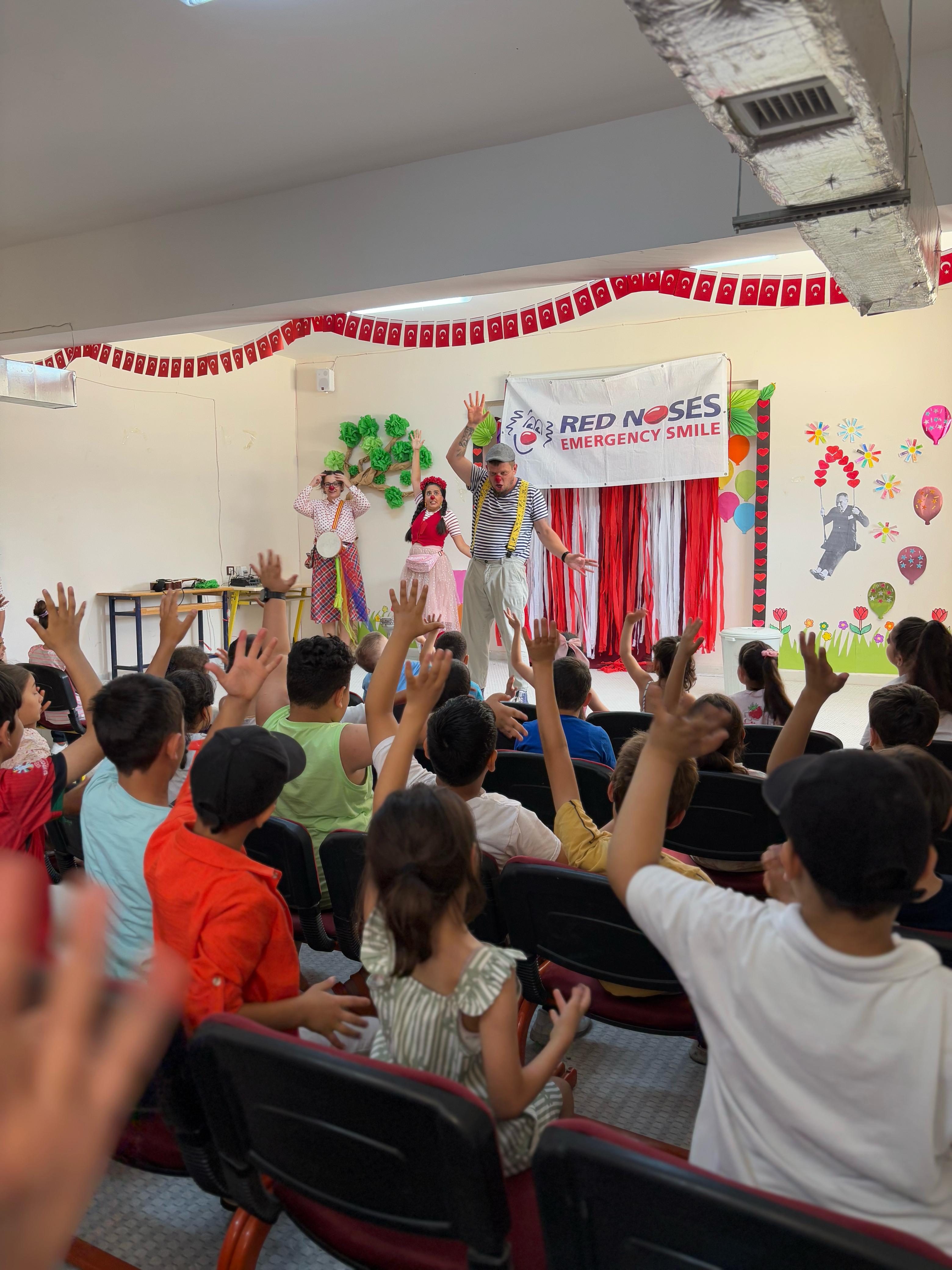 Enlarge photo
Enlarge photoClown show in the Serinyol Atatürk primary school in the region of Hatay
Four weeks of presence
This was a classic four-week Emergency Smile mission, and it brought with it the full spectrum of human experience: joy and grief, presence and play.
It wasn’t just about performance. It was about being there. About showing up in places where people are still rebuilding—physically and emotionally. And about offering something that doesn’t fix everything, but still matters deeply.
A moment of laughter. A gesture of recognition. A child running up just to say hello. A sentence in Arabic, spoken by a clown.
None of these things rebuild buildings. But they do help rebuild something else.
Hope.
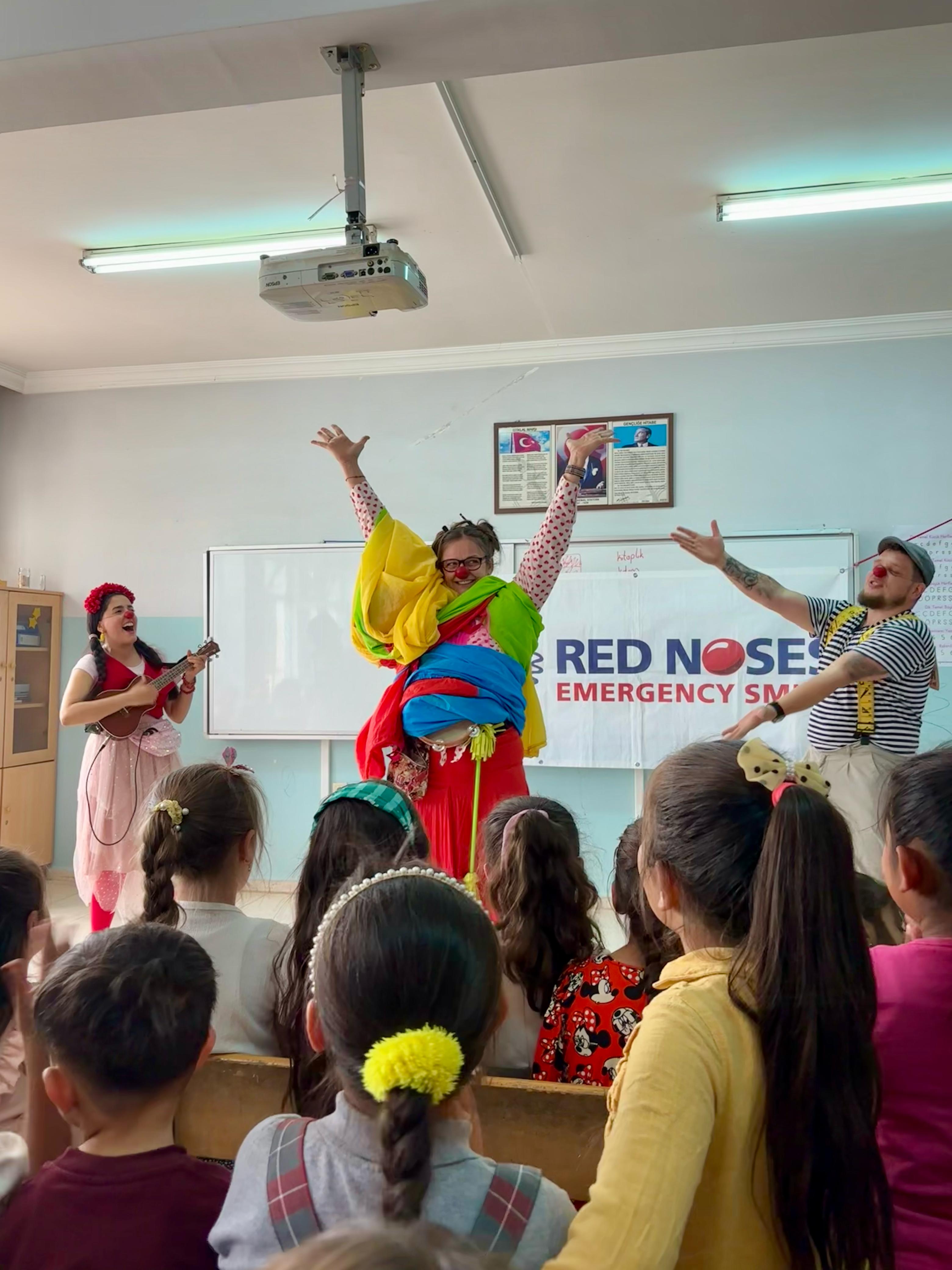 Enlarge photo
Enlarge photoClown show in the Serintepe Primary School in the region of Gaziantep with the Turkish Red Crescent
